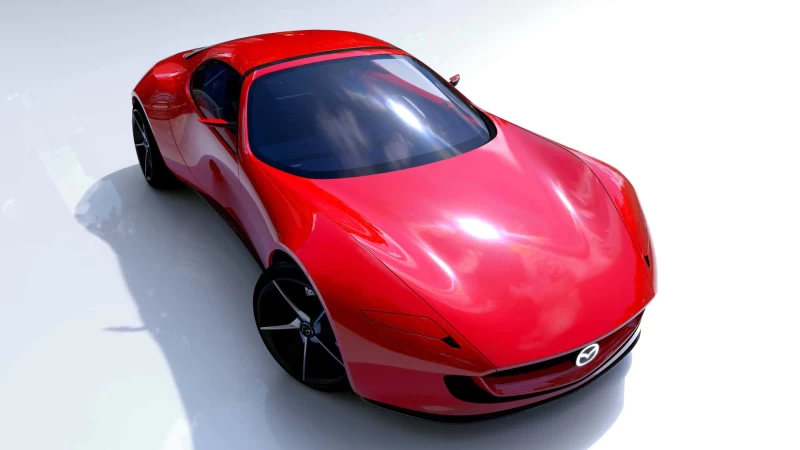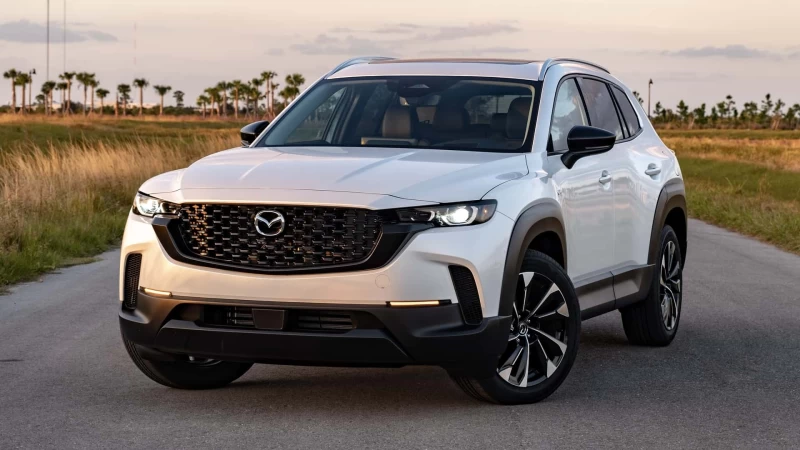CARS NEWS

Mazda Iconic SP Concept
It's been a little over a year since Mazda hinted at the return of the RX. The Iconic SP took the shape of a slinky coupe with a two-rotor engine. Ever since the gorgeous concept premiered at the Japan Mobility Show, the Zoom-Zoom company has been dropping hints about putting the car into production. In a new interview with Automotive News, the ... Read more

Mazda CX-50 Hybrid Was Worth the Wait
There are so many good compact crossovers out there. Honda CR-V? An excellent choice. Hyundai Tucson? Another great option. Toyota RAV4? It's a best-seller for a reason. Mazda doesn't get as much love in this category, but the Japanese automaker still has two excellent options, the CX-5 and the CX-50. The CX-5 has been around since 2012, but it got a major redo in 2017—and it's still a great vehicle. The CX-50 debuted for the 2023 model year as the hot new thing with a cleaner design, better proportions, and more features. If you value efficiency first and foremost, then yes, the CX-50 Hybrid was well worth the wait. Mazda teamed up with Toyota to borrow its 2.5-liter four-cylinder hybrid powertrain, which returns 37 miles per gallon in the city, 39 on the highway, and 38 combined. It's instantly the most efficient non-plug-in Mazda by a long shot; The next-best CX-50 gets just 27 mpg combined. A low-speed EV mode means you can drive on battery power alone at up to 25 miles per hour, or up to a certain accelerator-pedal threshold. It's super useful for quick jaunts around town; You can cruise to the grocery store with no gas. Just stay light on the pedal to keep the engine from kicking on. The big downside is that the CX-50 Hybrid doesn't have a ton of giddyup. It only makes 219 horsepower and 163 pound-feet of torque compared to the 2.5 Turbo model it replaces, which made 227 hp and 310 lb-ft. An electric motor at the rear provides all-wheel drive. There's a quick jolt of torque off the line courtesy of those electric motors, but power plateaus quickly. You really have to bury your foot deep into the throttle to get it up to highway speeds. And the powertrain isn't all that happy getting you there, either. The transition between gas and electric power is harsh, and at low speeds and idle, there's a coarseness coming from the engine bay. It sounds like two things are rubbing against each other that shouldn't be. Combine that with the ubiquitous hybrid drone and the CX-50 isn't exactly an exercise in refinement. There is still plenty of Mazda charm, though. The CX-50 has always been an excellent-driving thing, and that doesn't change much with the hybrid powertrain. It just goes… slower. The steering is perfectly crisp, the chassis is nicely balanced, and the ride is refined—if not a bit harsh. You'll have no issue flicking the CX-50 Hybrid (slowly) into a corner and getting decent feedback. This CX-50 also follows Mazda's premium ethos to a tee. A high-quality stitched leather covers most surfaces on this Premium Plus model, while faux aluminum accents dot the steering wheel and dash. There is some hard black plastic, but it isn't offensive—especially for this segment. And the seats are a little stiff; maybe the leather needs more time to break in. But my butt and back felt sore after just a few miles behind the wheel. Mazda's infotainment system could also use an update. The CX-50 Hybrid has the same 10.3-inch touchscreen found throughout the CX-50 range, but the graphics look dated, there are too many buried options, and the screen is pretty far out of reach of the driver. Thankfully, the center rotary controller still works better than any touchscreen ever will—and you still get wireless Apple CarPlay and Android Auto. The 2025 CX-50 Hybrid starts at a reasonable $35,390 with destination included for the base Preferred model. A RAV4 Hybrid with the same powertrain is still cheaper, starting at $33,120. But the Honda CR-V Hybrid is a tad pricier than the Mazda at $36,000. The mid-range Premium model costs $38,820, and this top-trim Premium Plus starts at $41,870. If you do decide to splurge on the Premium Plus model, it comes with basically every option out of the box. The only add-on on my tester was the $450 Wind Chill white paint. Ultimately, the CX-50 Hybrid will be an upgrade for the vast majority of shoppers. Mazda fixed one of its biggest issues, fuel economy, with some help from Toyota’s hybrid system. Performance and refinement take a slight hit, but that’s small potatoes when you’re getting 38 mpg combined. Read more